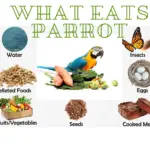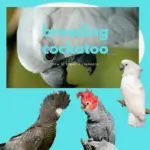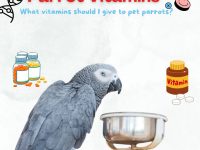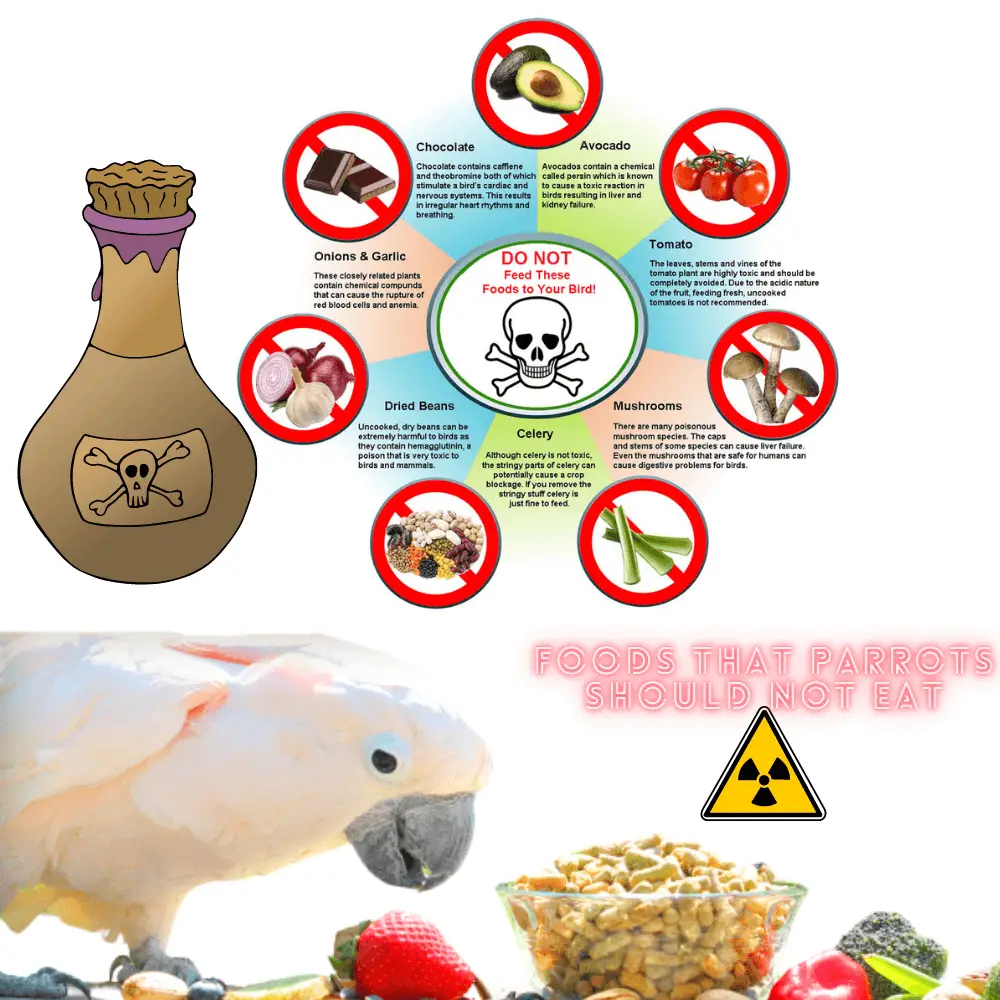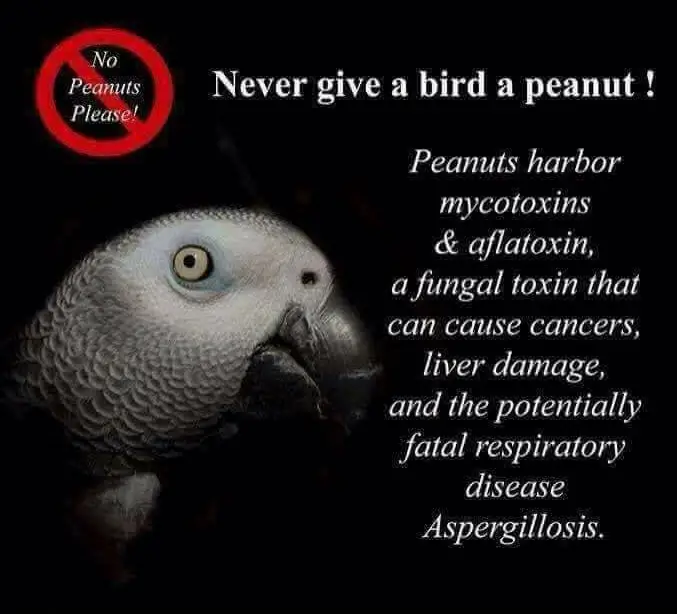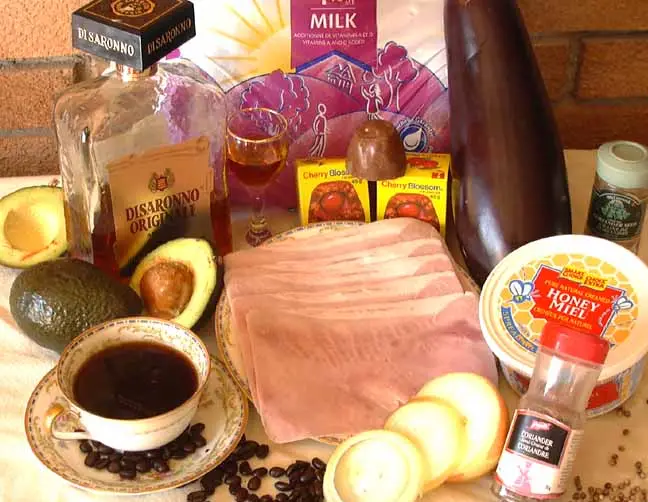Foods That Parrots Should NOT Eat: If you have decided to welcome such a bird, it is very important to know which foods to avoid for parrots and which foods should be part of their regular diet. In this way, you will be able to cover all the nutritional needs of your pet, which will be in good health.
The parrots are birds of the family of parrots, which includes a wide variety of species with similar characteristics. Their number is now estimated at around 300.
Currently, many people own a parrot as a pet, which is characterized above all by the great beauty of its very colorful plumage. If you decide to welcome an animal into your home, know that regardless of the species chosen, it will need specific care and nutrition to be in good health.
In this article, we tell you which foods are dangerous for parrots.
The best foods for parrots
What does a parrot eat: An ideal diet for the parrot should consist of:
- Fruits: Parrot can eat all types of fruits: oranges, apples, melons, apricots, pears, strawberries, grapefruit and bananas, tangerines, among others. Take into account that it is necessary to give him daily a mixture based on at least 3 different fruits so that he does not consume an excessive quantity of a particular fruit, especially when it is very fruit. sweet.
- Vegetables: they must also be present in the daily diet of the parrot. You can give it spinach, broccoli, chard, endives, carrots, radishes, tender-stemmed garlic, celery stalks, and peppers. As with fruit, it is very important to vary.
- Granules: they are not essential, but are highly recommended to supplement the diet of the parrot. For this you need to take special granules for psittacines.
- Seeds: The intake of seeds should not be as frequent as the intake of fruits and vegetables, but it is just as important. Choose dry, sprouted seeds.
Foods That Parrots Should NOT Eat
Foods That Parrots Should NOT Eat
Dangerous foods for parrots
The foods you give your parrot must respect the characteristics of its digestive system, so it is important to make sure that it does not ingest dangerous foods that would be toxic to your parrot and which could have several harmful and dangerous effects on your parrot. him. If you want your parrot to be in optimal health, never feed it the foods on the following list. Here are all the dangerous foods for parrots:
- Salt
- Attorney
- Chocolate
- Milk
- Alcohol
- Meat
- Sodas
- Soft drinks
- Sugar in general
- Coffee
- Raw tubers
- Parsley
- Aubergine
- Onion
- Garlic
- Apple or pear seeds
- Fried
- Foods Containing Colors
- Foods containing artificial flavors
- Preserves
- Artificial juices
- Spices
Avoid high-calorie foods like sunflower seeds or peanuts if you have an Amazon parrot, as they have a strong predisposition to obesity. You should not give milk to your parrot, but you can still give your parrot-derived dairy products without salt, always in moderation.
By taking this information into account and monitoring your pet’s diet well, you will provide them with optimal nutrition and ensure their good health.
Foods That Parrots Should NOT Eat
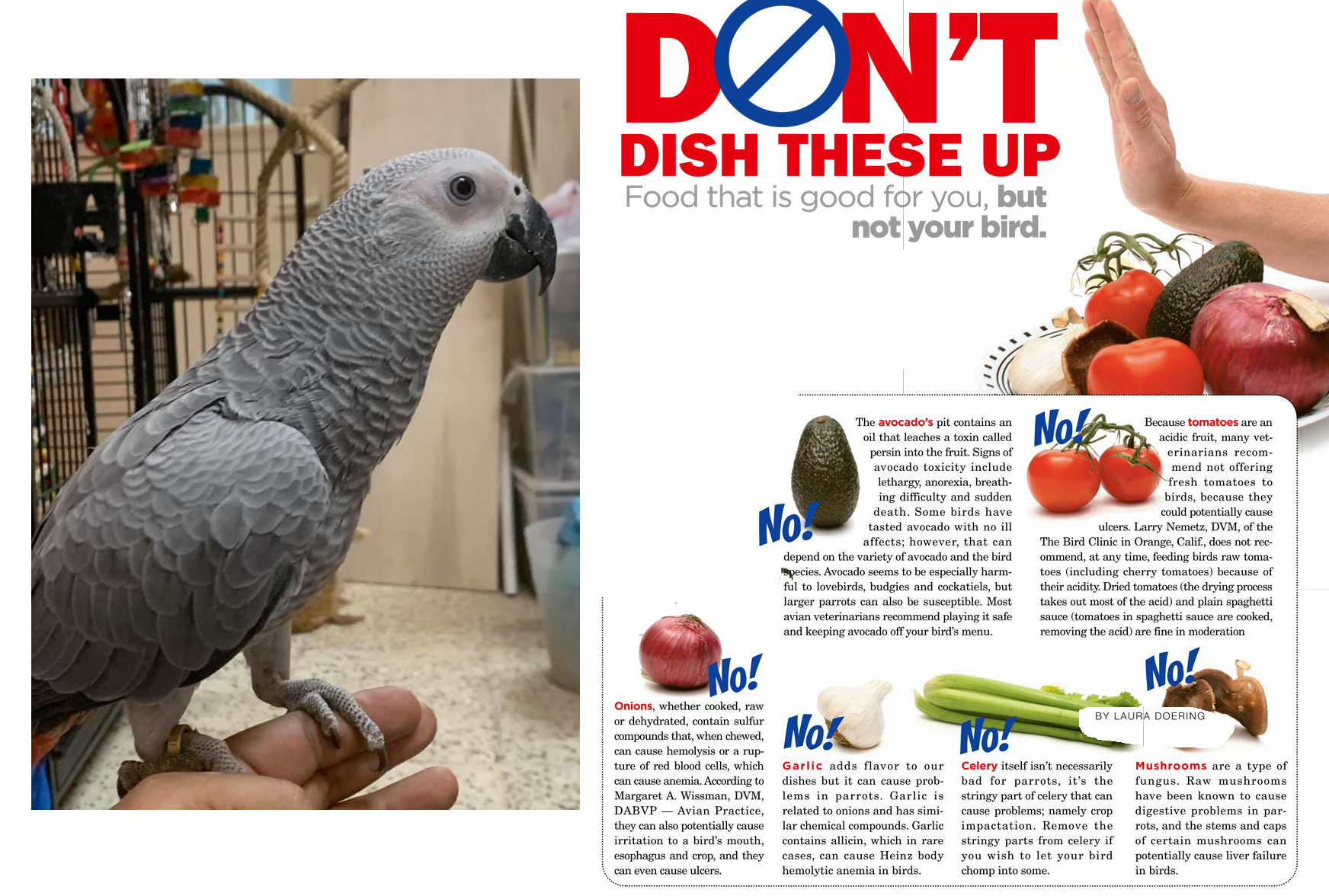
Foods That Parrots Should NOT Eat
Symptoms of poisoning
As we mentioned, if any of the dangerous parrot food is ingested by your pet, it risks poisoning and several negative reactions that will endanger its health. Here are some of the symptoms that indicate your parrot is sick :
- Low mobility
- Eyes parted
- Loss of appetite
- Significant increase in appetite
- Difficult breathing and open beak
- Significant increase in water consumption
- Isolation in a corner of the cage
- Diarrhea
- Weightloss
These symptoms are not only due to food poisoning, but also to a wide variety of underlying pathologies. It is therefore essential to go to the vet urgently if you identify any of these signs in your parrot.
Foods That Parrots Should NOT Eat
Parrots tend to taste things first and then worry about them later. The taste helps them explore the world around them.
But there are some everyday items in your home that can be a source of trouble for your feathered friend. Sharing food with your parrot helps bondage, but remember that they can’t eat exactly like you.
Fruits and vegetables
What’s good for you isn’t always good for your parrot pet. Take an avocado, for example. Eating any part of an avocado, including the flesh or a leaf, can make your parrot sick. Too much can even kill it.
You should also keep your parrot away from seeds of fruits such as apple, cherry, nectarine, peach, pear, and apricot seeds, although they can eat the fruit. Avoid alfalfa sprouts and don’t feed him raw beans, but rather cooked beans.
Foods That Are Toxic to Parrots
SOURCE:MARLENE MC’COHEN
Other foods
If you are feeding your parrot at the table with your family or if they are looking for a little treat. Make sure chocolate isn’t on your list. It is very toxic to parrots. The same goes for all kinds of alcohol. The garlic can be harmful and cause bad breath.
The salt is not good for your parrot: it would disrupt the water level and cause excessive thirst. Onions and mushrooms are good in small doses. But the portions should be small and infrequent.
the milk may do your body good, but it can wreak havoc on your parrot’s system. So avoid all dairy products. Yes, it also means cheese. Even if he seems to need a boost of energy, avoid giving him coffee and soda. Because caffeine and carbonation are not good for him.
Plants
Watch your parrot like a hawk when you let it emerge from its cage into a room with houseplants. Many are toxic. Maybe you didn’t give him the leaves on purpose. But he can jump all over the place and take a bite when you’re not looking.
There are so many houseplants that are poisonous that it’s best not to let your parrot get near any of them, just in case.
The most poisonous are hydrangea, begonia, bleeding heart, peace lily, caladium, different varieties of philodendrons, Schefflera, clover, and ivy.
Wood
You might not consider your parrot’s perch as part of their diet, but it is common for parrots to chew on their wooden perch when bored or sick.
The perches that you buy at retail stores are usually made from safe varieties of wood that have been treated to remove dangerous chemicals such as pesticides.

